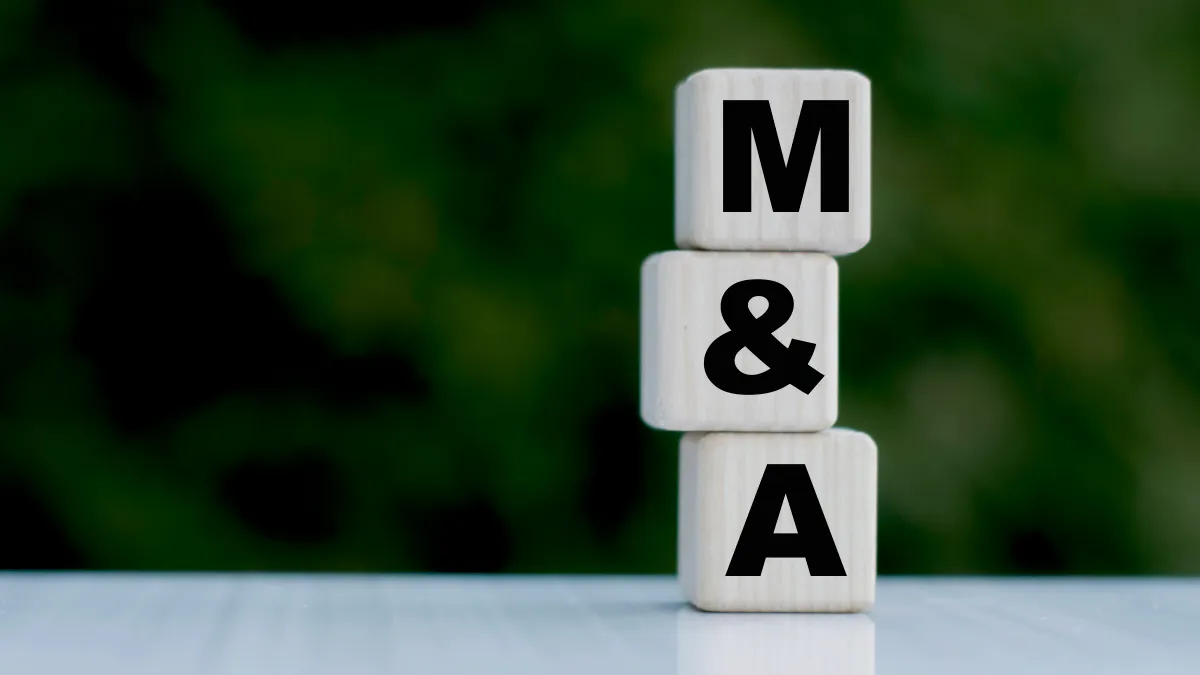The year in medtech ended as it began, with a burst of dealmaking driving companies' growth ambitions, and there is reason to expect another stretch of elevated M&A activity lies ahead in 2022.
After pausing in early 2020 amid COVID-19's uncertainties, acquisition-minded medtechs were soon making up for lost time. EY counted 288 deals across the sector from June 2020 to June 2021, the highest annual number since it began following medtech M&A in 2007.
Over the course of last year, PwC calculates the medical device industry tallied $85 billion in deals. The analysis includes data through mid-November, preceding Quidel's $6 billion end-of-year purchase of in-vitro test company Ortho Clinical Diagnostics.
Diagnostics deals played a large role in the medtech sector's M&A wave in 2021, fueled by buyers flush with revenue from the expansion of COVID-19 testing.
Across all of healthcare, companies are taking advantage of abundant capital, both in the private markets and via the rise of special purpose acquisition companies (SPACs). Medtech players in particular are motivated to gain scale as a defense against reimbursement pressures and to accelerate revenue generation by investing in high-growth areas, according to PwC. Becton Dickinson, for example, told analysts in November it aims to spend $2 billion annually on tuck-in acquisitions that will help it expand in hot areas such as connected care devices.
For these reasons, PwC is predicting another year of "exceptional" M&A activity in healthcare in 2022, with smaller acquisitions dotting the medtech landscape in the first half and more sizable purchases possible in the second half. "Given the fragmented nature of this subsector, the need for continued consolidation exists," the consultants said in their 2022 deals outlook.
Divestitures, such as Johnson & Johnson's consumer health spinoff, GE's healthcare transaction, and Zimmer Biomet's creation of the ZimVie spine and dental company – all announced last year – are expected to remain a vehicle for freeing up capital, the report said.
The following is a look back at a collection of medtech deals valued at $1 billion or more in 2021.
1. Thermo Fisher and PPD
In early December, Thermo Fisher completed the $17.4 billion acquisition of PPD, a provider of clinical research and laboratory services to pharma and biotech companies. The deal, first announced in April, followed Thermo Fisher's failed bid to buy molecular diagnostics company Qiagen. Thermo Fisher also assumed and retired about $3 billion of PPD's debt. PPD will become part of Thermo Fisher's laboratory products and services unit.
2. Baxter and Hillrom
PwC pointed to Baxter's $10.5 billion deal to buy Hillrom, announced in September, as an example of an acquisition driven by the need to build scale. Baxter CEO Joe Almeida has described the combination as a move to expand the company's connected care portfolio. The Hillrom acquisition, valued at about $12.4 billion including debt, was completed last month.
3. Quidel and Ortho Clinical Diagnostics
One of 2021's biggest acquisitions was announced just before Christmas. Quidel said it would pay $6 billion to buy Ortho Clinical Diagnostics, a 2014 Johnson & Johnson spinout that went public last year, joining forces to address a $50 billion market opportunity in in-vitro diagnostics.
William Blair analysts, in a note to clients after the deal announcement, said the merger will broaden Quidel's product offerings and global presence. Analysts at Craig-Hallum noted Ortho's focus is small to medium-sized hospitals looking for integrated diagnostics services. The acquisition is expected to close in the first half of 2022.
4. Steris and Cantel Medical
The announcement of Steris' $4.6 billion cash and stock deal for Cantel Medical in January helped kick off the sector's busy year of M&A. Steris gained a collection of endoscopy products and a foothold in the dental products market through the transaction, which was completed in June.
5. Roche and GenMark Diagnostics
In March, Roche said it would buy GenMark Diagnostics for $1.8 billion, picking up the company's novel technology for testing a range of pathogens with one patient sample. The Swiss company said GenMark's respiratory pathogen panels identify the most common viral and bacterial organisms in upper respiratory infection, including SARS-CoV-2, complementing its own portfolio of COVID-19 diagnostics products.
6. DiaSorin and Luminex
A month after Roche announced its GenMark takeover, Italy's DiaSorin revealed plans to acquire Luminex for $1.8 billion in a bid to expand its molecular testing business and broaden its presence in the U.S. GenMark and Luminex compete with BioFire and Quidel in the multiplex testing space.
7. Boston Scientific and Baylis Medical
Boston Scientific was an active acquirer in 2021, including two targets valued at over $1 billion. The company's $1.75 billion acquisition of Baylis Medical, announced in October, exemplifies the company's need to invest in high-growth areas, according to PwC.
Baylis specializes in devices that facilitate access to the left side of the heart, for procedures such as atrial fibrillation ablation, left atrial appendage closure and mitral valve interventions. The deal is expected to close in the first quarter of 2022.
8. GE Healthcare and BK Medical
GE Healthcare in December completed the $1.45 billion acquisition of BK Medical from private equity firm Altaris Capital Partners. GE Healthcare said the agreement, reached in September, will help advance its $3 billion ultrasound business beyond diagnostics and into surgical and therapeutic interventions, adding capabilities in the fast-growing surgical visualization segment.
9. Medtronic and Intersect ENT
In August, Medtronic announced its intent to buy Intersect ENT in a deal valued at $1.1 billion, to broaden its product portfolio for ear, nose and throat procedures. Intersect's steroid-releasing implants are designed to open nasal passages in the treatment of chronic rhinosinusitis.
10. Boston Scientific and Lumenis
Boston Scientific in September closed its acquisition of Lumenis' global surgical business. The $1.07 billion purchase, from an affiliate of Baring Private Equity Asia, was first announced in March. Lumenis' laser systems, fibers and accessories are used in urology and otolaryngology procedures.
11. Cardinal Health and private equity
Medical supplies and drugs distributor Cardinal Health in March said it agreed to sell its Cordis business for about $1 billion to private equity firm Hellman & Friedman. Cardinal bought the cardiovascular device manufacturer from J&J in 2015. The divestiture will decrease Cardinal's medical segment profit by about $60 million to $70 million on an annual basis.

















